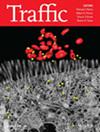细胞外囊泡:三种原生动物寄生虫的转化议程问题
IF 2.5
3区 生物学
Q3 CELL BIOLOGY
引用次数: 0
摘要
原生动物寄生虫恶性疟原虫、利什曼原虫和南美锥虫继续对撒哈拉以南非洲和拉丁美洲人口的疾病状况造成重大影响。控制措施有助于减轻疟疾、利什曼病和南美锥虫病流行地区的疾病负担。然而,由于抗微生物药物耐药性的不断发展、疫苗相对不足或缺失,以及缺乏可信的发病结果标记物,因此出现了对新药物、创新疫苗接种策略以及疾病严重程度和结果分子标记物的需求。细胞外囊泡(EVs)自被发现以来,就被广泛报道在恶性疟原虫、利什曼原虫属和克鲁兹疟原虫的生物学和致病性中发挥作用。EVs是通过原生动物尚未完全了解的机制分泌到细胞外环境中的,其携带的各种分子反映了原生细胞的新陈代谢状态。尽管我们对 EVs 的生物发生和功能的理解在不断加深,但恶性疟原虫、利什曼原虫和克鲁斯原虫中的 EVs 如何作为转化为临床和公共卫生干预议程的目标,这一问题仍有待充分探讨。在此,作为一个原生动物研究人员联盟,我们为未来的研究人员概述了一项计划,并提出了三个问题,以指导恶性疟原虫、利什曼原虫属和克鲁斯原虫的 EV 转化议程。我们认为,从长远来看,执行这一蓝图将有助于满足撒哈拉以南非洲和拉丁美洲目前对这些具有重要医学意义的原生动物疾病尚未满足的需求。本文章由计算机程序翻译,如有差异,请以英文原文为准。
Extracellular Vesicles: Translational Agenda Questions for Three Protozoan Parasites
The protozoan parasites Plasmodium falciparum , Leishmania spp. and Trypanosoma cruzi continue to exert a significant toll on the disease landscape of the human population in sub‐Saharan Africa and Latin America. Control measures have helped reduce the burden of their respective diseases—malaria, leishmaniasis and Chagas disease—in endemic regions. However, the need for new drugs, innovative vaccination strategies and molecular markers of disease severity and outcomes has emerged because of developing antimicrobial drug resistance, comparatively inadequate or absent vaccines, and a lack of trustworthy markers of morbid outcomes. Extracellular vesicles (EVs) have been widely reported to play a role in the biology and pathogenicity of P. falciparum , Leishmania spp. and T. cruzi ever since they were discovered. EVs are secreted by a yet to be fully understood mechanism in protozoans into the extracellular milieu and carry a cargo of diverse molecules that reflect the originator cell's metabolic state. Although our understanding of the biogenesis and function of EVs continues to deepen, the question of how EVs in P. falciparum , Leishmania spp. and T. cruzi can serve as targets for a translational agenda into clinical and public health interventions is yet to be fully explored. Here, as a consortium of protozoan researchers, we outline a plan for future researchers and pose three questions to direct an EV's translational agenda in P. falciparum , Leishmania spp. and T. cruzi . We opine that in the long term, executing this blueprint will help bridge the current unmet needs of these medically important protozoan diseases in sub‐Saharan Africa and Latin America.
求助全文
通过发布文献求助,成功后即可免费获取论文全文。
去求助
来源期刊

Traffic
生物-细胞生物学
CiteScore
8.10
自引率
2.20%
发文量
50
审稿时长
2 months
期刊介绍:
Traffic encourages and facilitates the publication of papers in any field relating to intracellular transport in health and disease. Traffic papers span disciplines such as developmental biology, neuroscience, innate and adaptive immunity, epithelial cell biology, intracellular pathogens and host-pathogen interactions, among others using any eukaryotic model system. Areas of particular interest include protein, nucleic acid and lipid traffic, molecular motors, intracellular pathogens, intracellular proteolysis, nuclear import and export, cytokinesis and the cell cycle, the interface between signaling and trafficking or localization, protein translocation, the cell biology of adaptive an innate immunity, organelle biogenesis, metabolism, cell polarity and organization, and organelle movement.
All aspects of the structural, molecular biology, biochemistry, genetics, morphology, intracellular signaling and relationship to hereditary or infectious diseases will be covered. Manuscripts must provide a clear conceptual or mechanistic advance. The editors will reject papers that require major changes, including addition of significant experimental data or other significant revision.
Traffic will consider manuscripts of any length, but encourages authors to limit their papers to 16 typeset pages or less.
 求助内容:
求助内容: 应助结果提醒方式:
应助结果提醒方式:


